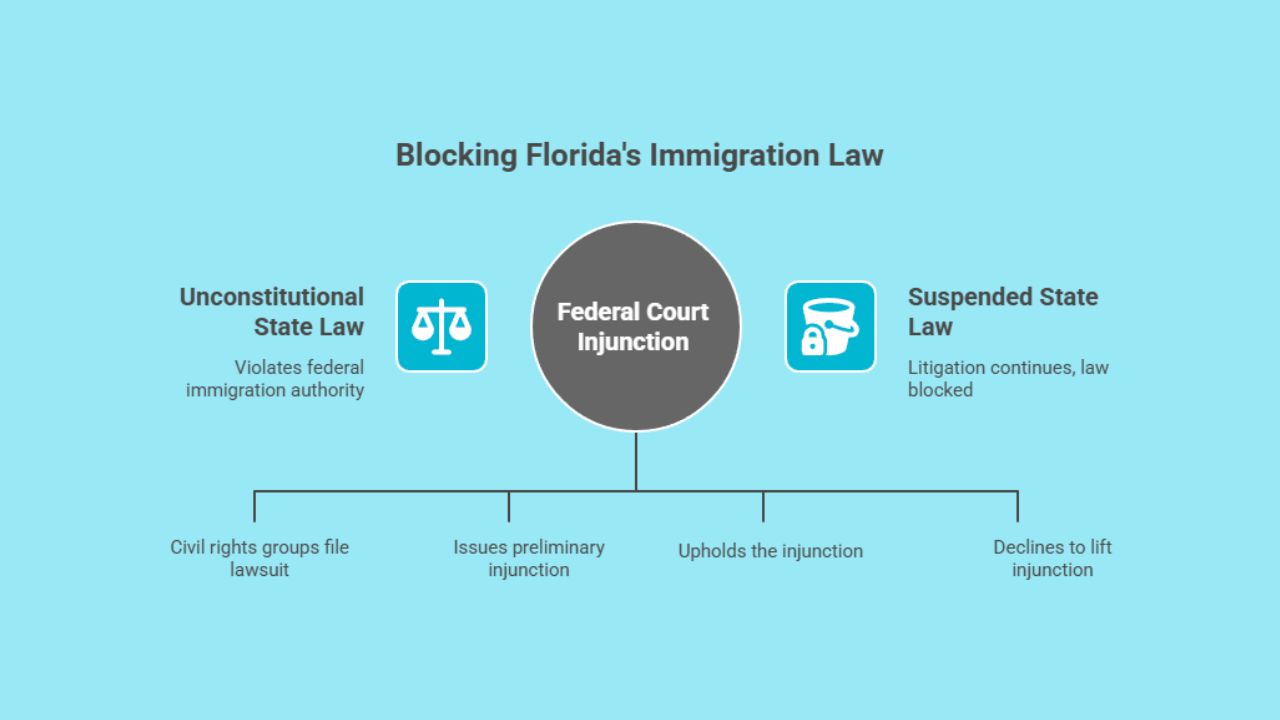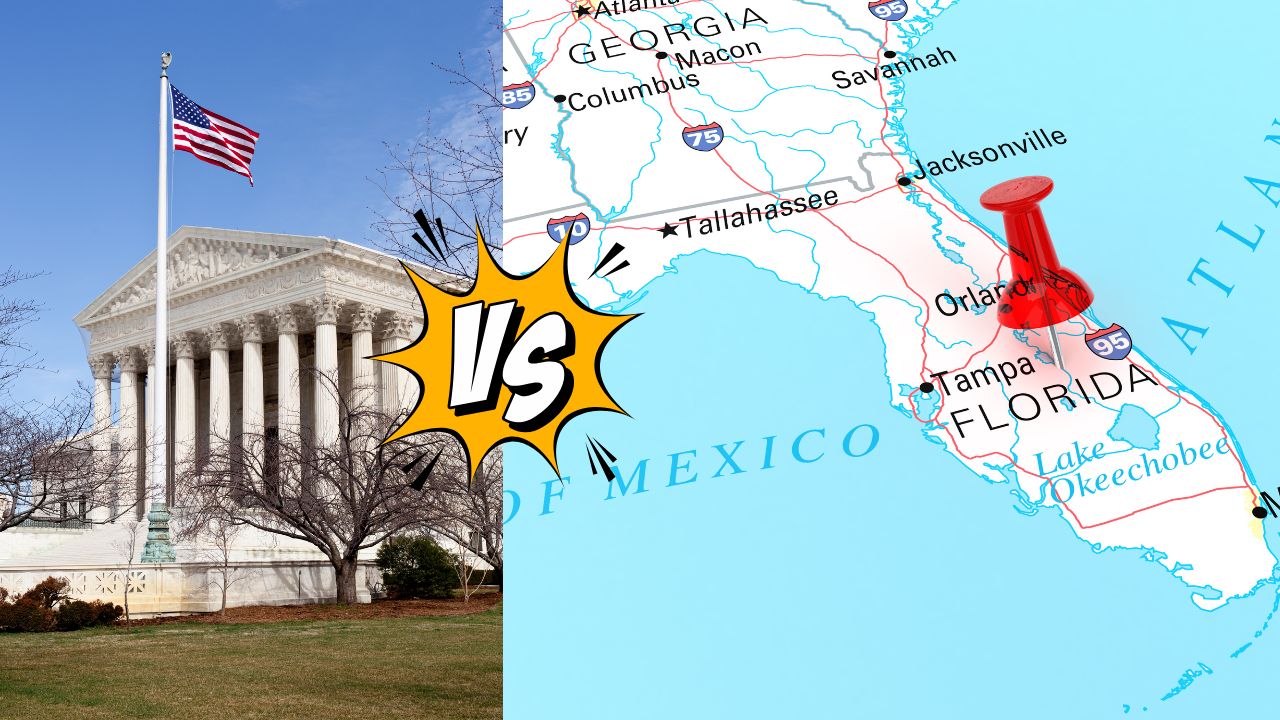In a significant legal and political development, Florida’s controversial immigration enforcement law has been blocked by federal courts. The law, passed earlier in 2025, would have made it a criminal offense for undocumented immigrants to enter or re-enter the state, with mandatory jail time and escalating penalties. Critics argued that the law overstepped state authority and posed serious risks to civil liberties, triggering a wave of legal opposition.
Table of Contents
Overview of the Law
The Florida law, known as Senate Bill 4‑C, sought to impose harsh penalties on individuals entering the state without legal immigration status. Key provisions included:
- Mandatory nine-month jail terms for first-time offenses.
- Felony charges and enhanced penalties for repeat entries.
- No exceptions for asylum seekers, refugees, or individuals with pending immigration relief.
The law was designed to mirror federal reentry penalties, but applied them under state jurisdiction, a move that sparked immediate legal controversy.

Legal Challenge and Injunction
Shortly after the law’s passage, civil rights groups and individuals affected by the legislation filed a lawsuit in federal court. They argued that immigration enforcement is an exclusively federal responsibility and that Florida’s law violated the U.S. Constitution’s Supremacy Clause.
In April 2025, a federal district judge issued a preliminary injunction, halting enforcement of the law. The court found credible concerns that the law conflicted with federal immigration authority and posed a risk of wrongful detention and civil rights violations.
The injunction was later upheld by the U.S. Court of Appeals, and the U.S. Supreme Court declined to lift it. This means the law remains suspended while litigation continues.
Unlawful Arrests Despite the Block
Despite the injunction, law enforcement agencies in Florida mistakenly continued to arrest individuals under the suspended law. In one alarming case, a U.S.-born citizen was wrongly detained, highlighting the dangers of implementing such laws without proper oversight and training.
In response, the court held state officials in contempt for failing to comply with the injunction, and charges against wrongfully arrested individuals were dropped.
Implications of the Injunction
1. Limits of State Power
The injunction reinforces the legal principle that immigration enforcement is a federal matter. States cannot independently create or enforce immigration-related crimes that conflict with federal law.
2. Judicial Oversight
The courts acted as a vital check on state overreach, ensuring that constitutional rights are protected and that due process is upheld.
3. Ongoing Legal Battle
Although the law is currently blocked, the legal challenge is still active. Florida has indicated plans to continue appealing, potentially bringing the case back to higher courts.
4. Civil Rights at Stake
The attempted enforcement of the law, even while blocked, demonstrates how such policies can lead to racial profiling, wrongful arrests, and erosion of public trust in the justice system.
The legal fight over Florida’s immigration law is a critical test of constitutional boundaries and human rights protections. While the courts have temporarily halted the law, the broader debate over state versus federal authority in immigration continues. As the case proceeds, it will serve as a key benchmark for how far states can go in crafting and enforcing their own immigration policies.

